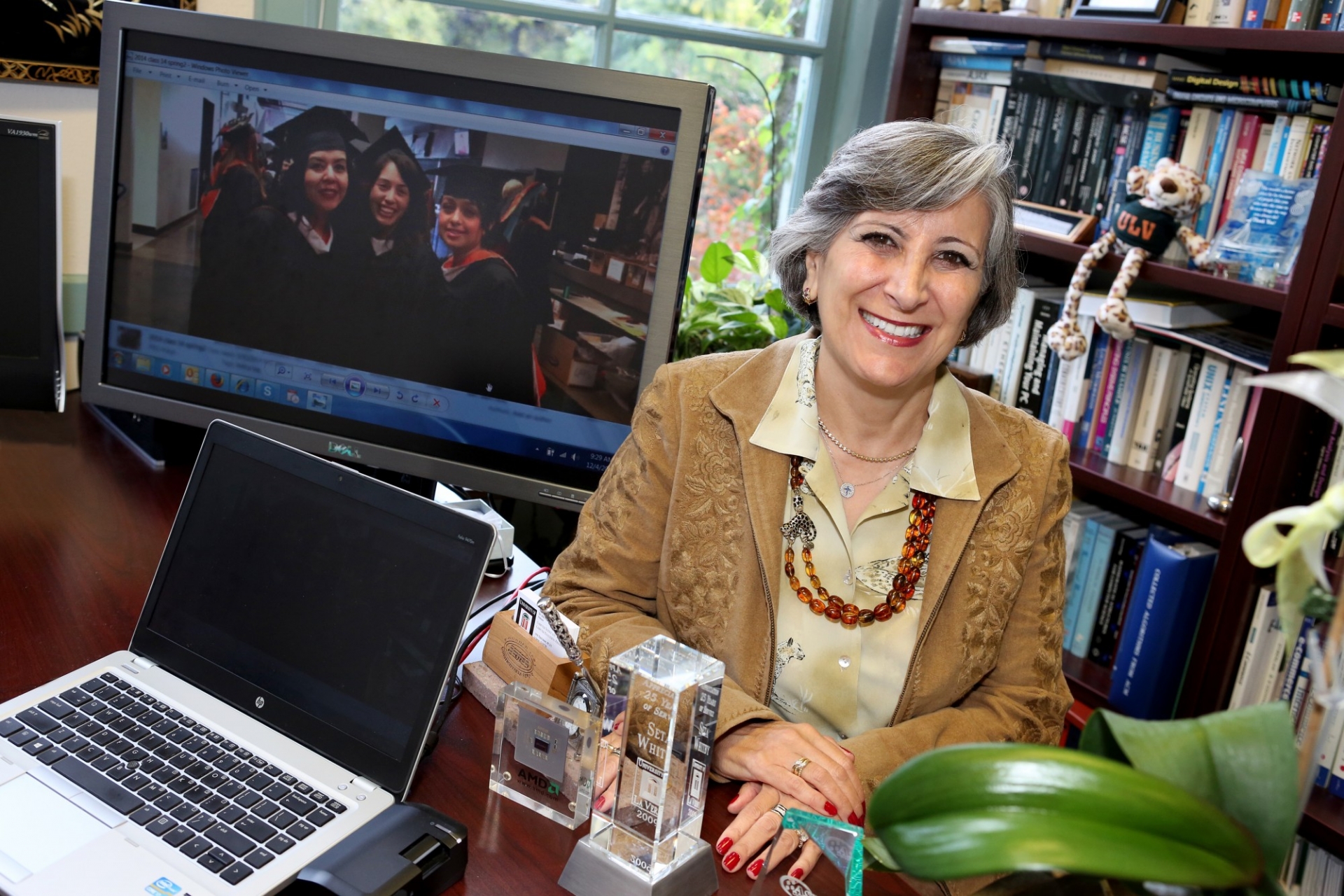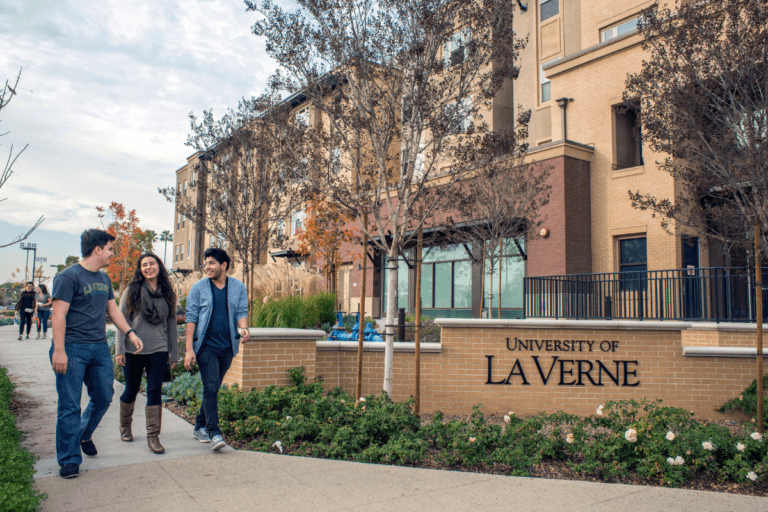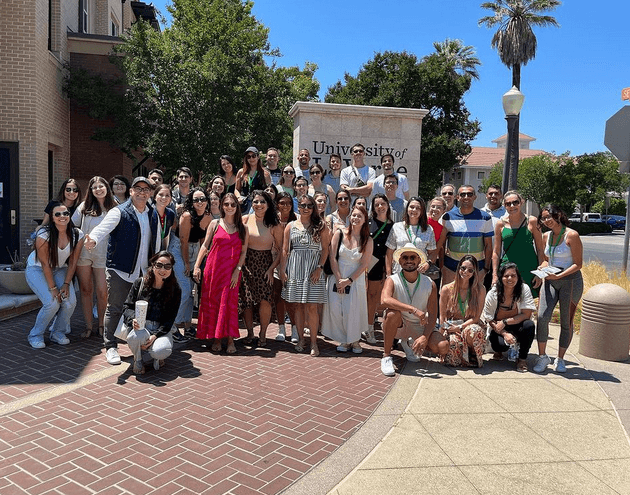Professor working to boost female interest in computer science, engineering

When Seta Whitby switched from English to computer science as her major in the early 1980s at the University of La Verne, she found herself in classrooms with only men.
It did not take long for her classmates to single her out.
“The guys in the classroom had a running bet about when I was going to change my major,” she said.
Whitby has been teaching computer science at La Verne for 31 years – including 26 as Program Chair – and still sees that gender disparity. Out of 130 students currently majoring in the field at La Verne, only 14 percent are women.
But she hopes to see that change through her volunteer work with the National Center for Women & Information Technology (NCWIT). Whitby would also like to increase undergraduate interest in computing overall – regardless of gender.
Whitby, who is Armenian but grew up in Lebanon, came to La Verne in 1981 to major in nursing, but discovered the institution did not have such a program at the time. She decided to pursue English instead.
All of that changed once she took a computer class.
“It is so logical and it is so fascinating,” she said. “Computer science is always giving me a puzzle to solve. Here I am 31 years later and I’m still intrigued. Every day I learn something new.”
She calls herself an introvert, but also someone who likes to help people. So sitting in front of a computer all day did not appeal to her. Whitby chose to pursue teaching the subject.
It has proven to be a rewarding career.
A student she taught in the early 1990s told her he dreamed of working for Industrial Light & Magic, a company that produces special effects for movies. After building a virtual reality racing machine with a student group for his senior project, the company hired him on the spot.
Another man who approached Whitby in search of a job instead pursued a computer science degree at her urging. He is enjoying a successful career in the field, she said.
Daniela Tirado, a junior majoring in computer science and engineering, called Whitby a professor who goes out of her way to make sure her students understand the material she presents.
“She really cares about her students’ growth and success and she goes the extra mile to ensure we succeed as students as well as take the information and use it to succeed in life,” Tirado said.
Whitby is one of 800 representatives in the National Center for Women & Information Technology’s Academic Alliance. The Boulder, Colo.-based nonprofit organization focuses on increasing the number of women participating in computing and technology.
The organization feels an increase in women pursuing computer science degrees is important because an estimated 1.2 million computer technology jobs are expected to be available by 2022, and only 26 percent of professional computing occupations were held by women in 2013.
Computer science and engineering major Sierra Jones said she was the lone female during her first computer science class with Whitby, so she recognizes the need. She wants to join a start-up company upon graduating, preferably one that supports women in science, technology, engineering and mathematics fields (STEM).
“Dr. Whitby made me feel comfortable and capable as a woman, that I was just as capable as the next male student,” Jones said.
With women involved in computing projects, it adds more flavor to the work, Whitby said.
“Having a different point of view forces the others to think differently,” she said. “It raises the level of presentation and quality of work.”
She meets with NCWIT annually to share ideas about increasing interest in the field. The organization provides funding for various projects, including helping students create computer science clubs on their campuses. Whitby hopes to secure internship opportunities for her students through other organizations that are affiliated with the group.


